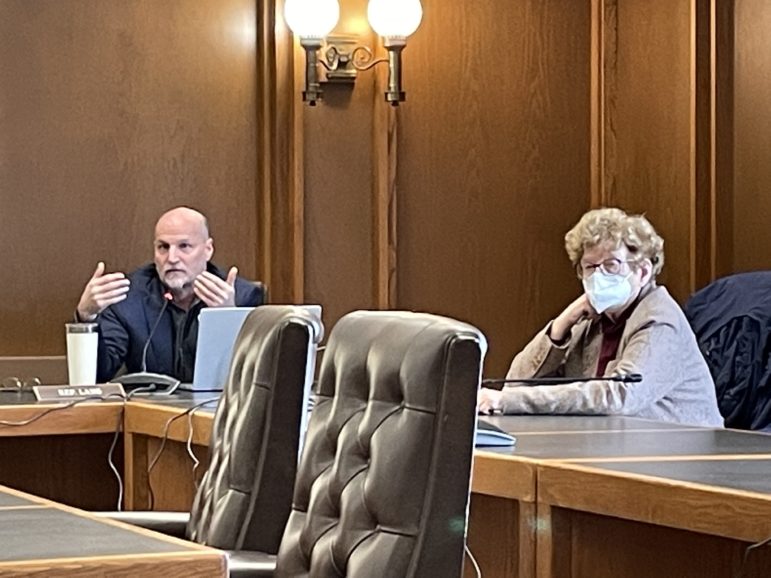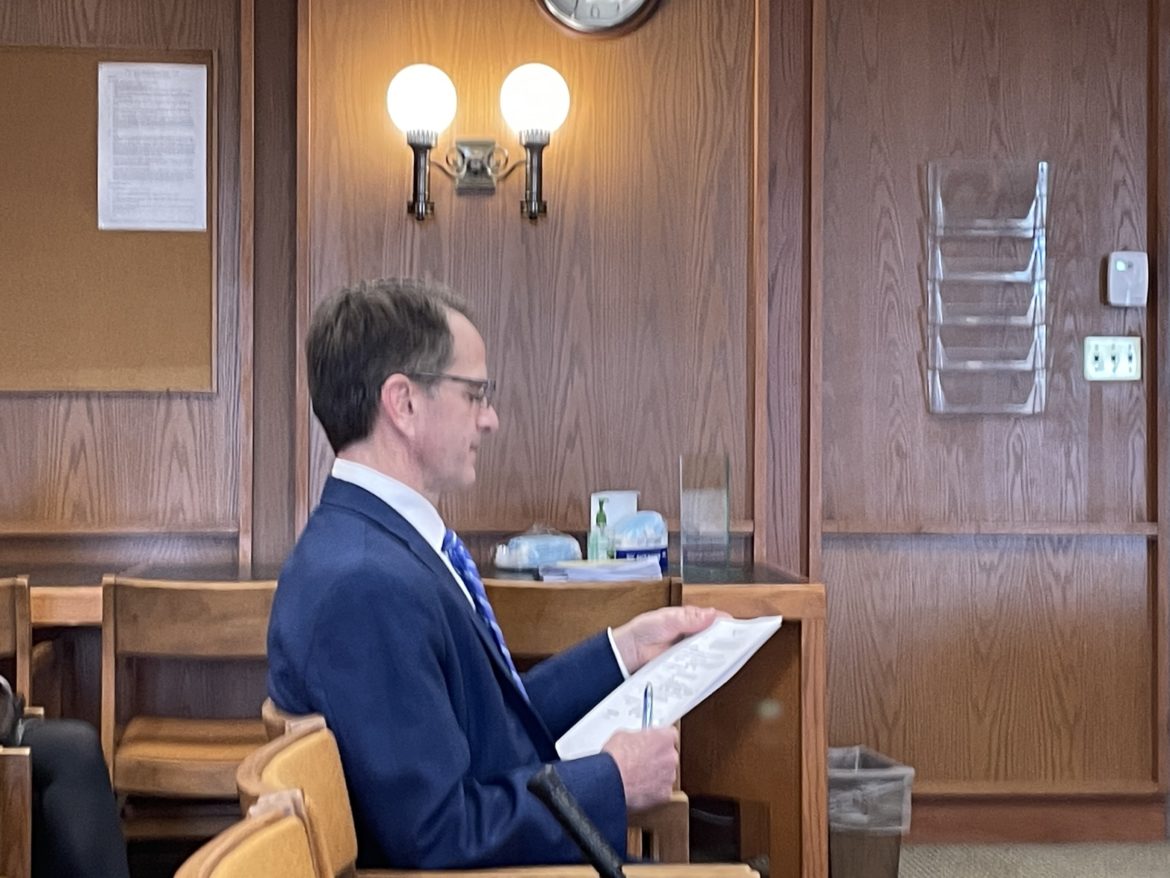
By PAULA TRACY, InDepthNH.org
CONCORD – Education Freedom Accounts and lack of constraints on eligible expenses under the program were the subjects of a rules discussion by the Joint Legislative Committee on Administrative Rules Friday.
Education Commissioner Frank Edelblut and Chris Bond, attorney for the Department of Education, said the legislation that created such freedom accounts contains a list of enumerated criteria for education expenses like math, science, and a “catch-all” category at the end that can be considered by the scholarship organization for approval.
The department will audit expenses and be sure that the expense is consistent with educational needs and the constitution, like religious education, they said.
But Sen. Becky Whitley, D-Hopkinton, said the “catch-all” category essentially gives “a blank check” and is too broad for the use of public money.
Despite her concerns about the vagueness of the language, JLCAR passed the rule on a vote of 6-3.
“Why wouldn’t you put (religious) as an exception?” she asked. “To provide clear guidance.”
The money is going to religious schools, she said, but how do we as a taxpayer know it isn’t being used on religious education, Whitley asked.
“Our role is to administer the rules you have given us,” Edelblut said, opposing a change in the rule.
He made an example that parents might ask to fund furniture for their home to make it a better learning environment but he said that would not fit the enumerated allowances and upon appeal that would be rejected.
Instruction for being an airline pilot would also not qualify, Edelblut said.
This could allow for religious education which could be unconstitutional, a staff attorney said, and Edelblut said that would not be allowed under the catch-all category.
The ACLU-NH wrote a letter to the department Thursday objecting to the vagueness of the existing language.
“We would look to the statute to see if this is science, math…that is not an adequate expense so that would be rejected,” Edelblut said.
Sen. James Gray, R-Rochester, said the Legislature put that catch-all in there and he voted for the bill. He said to try to define it to a very fine point does not make sense.
Whitley said her concern was that it would be a wrong delegation of power.
Edelblut disagreed.
This is the first year that some students in New Hampshire have been able to apply for and receive grants to attend schools other than their public school. About 1,600 grants of up to $8,000 have been approved and were many more than had been anticipated.
Applications for the 2022-23 school year will open soon.
New Hampshire families earning up to 300 percent of the poverty line are eligible and can direct part of their child’s state education funding to pay for tuition at the school of their choice, tutoring, online learning programs, educational supplies, and other educational expenses.
Rep. Carol McGuire, R-Epsom, moved to conditionally approve the language and work with the legislature and report back on changes.
Rep. Tim Lang, R-Sanbornton, agreed and said the department is in a “Catch 22” situation to define an expense and that the department could work with the legislature on more specifics.





